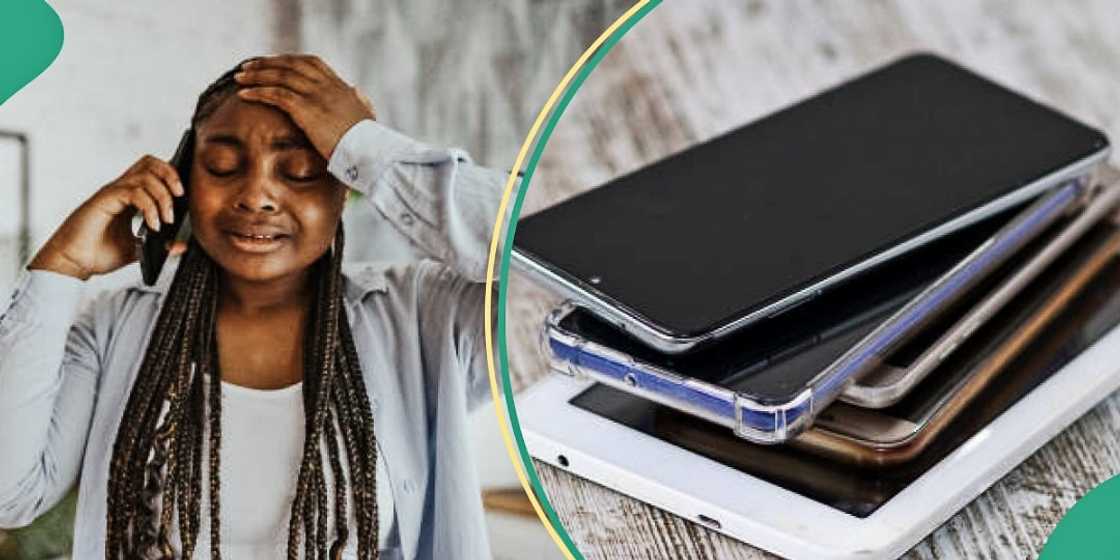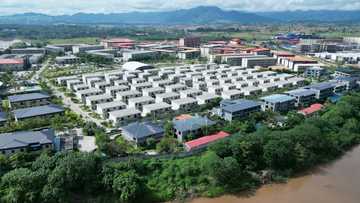No Hiding Place for Thieves: NCC Rolls Out Device Tracking System to Block Fake, Cloned Devices
- The Nigerian Communications Commission (NCC) is on a mission to end phone theft with a new device tracking system
- The commission disclosed recently that it has begun rolling out the long-awaited Device Management System (DMS)
- The DMS aims to crack down on stolen, substandard or clone devices nationwide, reducing incidents of theft
Pascal Oparada, a reporter for Legit.ng, has over ten years of experience covering technology, energy, stocks, investment, and the economy.
After nearly a decade of planning, the Nigerian Communications Commission (NCC) has begun rolling out its long-anticipated Device Management System (DMS), a nationwide tracking platform designed to block stolen, fake, or cloned phones from connecting to Nigerian mobile networks.
Developed through a Public-Private Partnership (PPP), the DMS will use each phone’s International Mobile Equipment Identity (IMEI) number to monitor and manage all devices connected to the country’s telecom networks.

Source: TikTok
Device tracking system: Curbing multi-billion naira problem
Nigeria’s device market is massive and messy. As of 2020, more than 132 million unique mobile devices were active on local networks, with about 63 million new phones sold each year.
Yet a large portion is counterfeit, cloned, or smuggled, costing billions in lost revenue and creating huge security risks.
According to TechCabal, the NCC said the system will serve as a “single control point” to identify and block any phone not type-approved or registered. Once fully implemented, stolen or fake phones will automatically stop working as their IMEI numbers are blacklisted across all networks.
DMS: Tackling crime and cybersecurity threats
Beyond fake devices, the DMS also aims to strengthen national security. The NCC warns that counterfeit phones often come preloaded with malware, spyware, or ransomware — tools used by cybercriminals and even terror networks.
“Some fake devices have been used by criminal networks, including Boko Haram. A proper device registry helps trace phones, prevent data theft, and protect national security interests,” the NCC noted.
Phone theft is also rampant. Between May 2023 and April 2024, an estimated 25.35 million phones were stolen across Nigeria — the country’s most reported crime. Yet only about 11.7% of victims ever recover their devices.

Read also
Customer Service Week: How FIRS boss Adedeji transformed tax Sservice, Nigerians feel the change
Device tracking system: A decade to achieve
Talks on a national DMS began as far back as 2015, with the NCC and Mobile & Wireless Forum leading discussions to curb counterfeit ICT devices.
The framework was formalised in 2022 and approved by the Infrastructure Concession Regulatory Commission (ICRC) under a PPP model.
Similar systems already exist in India and Lebanon, where IMEI-based registries automatically block stolen phones and ensure taxes are paid on imported devices.
Privacy concerns and potential pitfalls
While the NCC insists the DMS is designed to protect users, telecom experts warn it could also open the door to privacy violations and accidental disconnections.
“Even if you bought a genuine phone abroad, you might have trouble using it locally,” one telecom executive cautioned. “The potential for disruption is huge.”
Wole Adetuyi, CEO of Swift Telephone Network, added that without strong oversight, the system could become a surveillance tool, allowing mass device tracking.
The NCC maintains the rollout will comply with NITDA’s Data Protection Regulation (NDPR) and insists the framework will be implemented gradually to avoid disruptions.

Read also
Banking without sleep: FirstBank unveils 24-hour digital hub, signals major shift in banking
The stakes for Nigeria’s telecom future
Nigeria’s telecom sector, with over 200 million active lines, is Africa’s largest and one of its fastest-growing.
The NCC’s move comes a few months after Google introduced new features to combat smartphone theft by making it harder for thieves to wipe and resell stolen Android devices.
The tech giant is working on new security features to combat smartphone theft by making it harder for thieves to wipe and resell stolen Android devices.
The company announced that the new enhancements to Android's Factory Reset Protection (FRP) will go live later this year (2025).
If executed well, the DMS could improve service quality, curb substandard imports, and boost national security. But if mishandled, it could spark confusion, restrict access, and erode public trust.

Source: Getty Images
For now, the NCC appears determined to press ahead with a project it says is “a decade in the making.”
The real challenge will be ensuring that in the battle against fake phones, genuine users don’t become collateral damage.
NCC approves 52 new mobile phones in Nigeria
Legit.ng earlier reported that NCC said that the total number of approved phones in Nigeria stood at 2,397 as of Wednesday, August 20, 2025.
This was a significant increase from 2,303 approved phones as of August 2024.
As of December 2024, Nigeria's number of approved phone types stood at 2,352.
Proofreading by Kola Muhammed, copy editor at Legit.ng.
Source: Legit.ng



